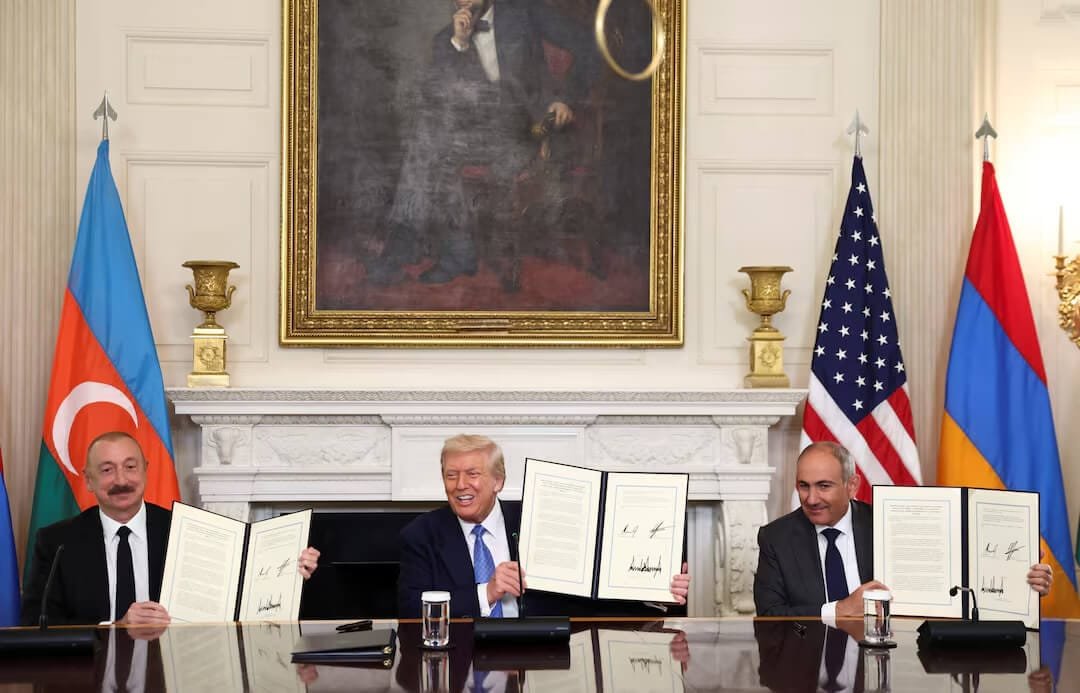On August 8, Armenia and Azerbaijan, long entangled in a conflict over Nagorno-Karabakh, formalized a peace agreement at the White House, mediated by U.S. President Donald Trump. The accord marks the most significant diplomatic breakthrough between the rivals in nearly four decades, pledging a permanent end to hostilities, normalization of diplomatic and commercial relations, and mutual respect for sovereignty and territorial integrity.
At the heart of the deal is the creation of a new strategic transit corridor known as the “Trump Route for International Peace and Prosperity” (TRIPP), linking mainland Azerbaijan to its Nakhchivan exclave via Armenian territory. The United States will hold exclusive leasing and development rights over this passage, which will be managed under Armenian law. This initiative not only reopens critical transport routes but also symbolizes a reshaping of regional power dynamics, notably undercutting Russia’s longstanding influence in the South Caucasus.
Both Armenian Prime Minister Nikol Pashinyan and Azerbaijani President Ilham Aliyev hailed the agreement as a historic milestone. Each leader expressed gratitude for Trump’s role, with some publicly declaring their intention to nominate him for the Nobel Peace Prize. In addition to the joint declaration, both nations signed separate bilateral agreements with the U.S. aimed at bolstering trade, energy, technology, including artificial intelligence and defense cooperation, with previous restrictions on U.S.–Azerbaijan defense ties officially lifted.
The agreement also formally requests the dissolution of the OSCE Minsk Group, a mediation framework long overseen by Russia, the United States, and France, signaling a strategic departure from Russian-led conflict resolution mechanisms.
Despite the breakthrough, key challenges persist. Critics particularly within the Armenian diaspora point out that the accord does not address the fate of displaced Armenians from Nagorno-Karabakh, prisoners of war, or protections for Armenian cultural sites, raising concerns over human rights and the integrity of peacebuilding efforts.





